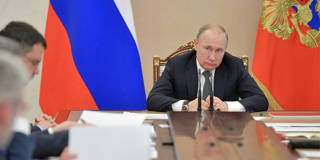Nina L. Khrushcheva
Says More…
This week in Say More, PS talks with Nina L. Khrushcheva, Professor of International Affairs at The New School.
Project Syndicate: In June 2021, you argued that we were living in an era characterized by the same kind of “nuclear brinkmanship” that marked the 1950s and early 1960s. With Russian President Vladimir Putin issuing nuclear warnings, the risk of a devastating miscalculation that you highlighted is newly salient. What lessons from the Cold War should inform efforts to avert nuclear catastrophe today and in the future?
Nina L. Khrushcheva: I reviewed Serhii Plokhy’s Nuclear Folly: A New History of the Cuban Missile Crisis last year in order to answer just that question. While nuclear brinkmanship has come to the fore with Russia’s invasion of Ukraine, the ground was prepared in 2001, when President George W. Bush decided to withdraw the United States from the 1972 Anti-Ballistic Missile Treaty, which was considered a foundation stone of strategic stability. Following that move, both the US and Russia began gradually eroding the strategic arms-control regime that had emerged in the wake of the Cuban Missile Crisis to prevent similar confrontations.
Fifty years later, the logic that drove the rise of that regime seems to be missing. The Cuban Missile Crisis took 13 days to resolve. Nikita Khrushchev and John F. Kennedy both recognized that the smallest miscalculation or accident could lead to a global nuclear catastrophe. We are not seeing similar concern for humanity from our current leaders, with Putin displaying a particularly cavalier, even cruel, attitude toward human life. The first step back from the brink must be recognition and appreciation of the existential nature of the nuclear threat.
